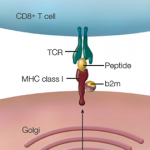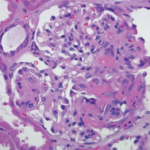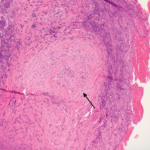Seeing a large number of patients with systemic vasculitis, I have come to anticipate the questions that patients will kick themselves for not having asked. In French, they talk about l’esprit d’escalier—the witty remark that comes to mind as you are on the staircase, taking your exit from the party. I guess this is more like l’esprit de voiture—the comment or the question that comes to mind only when the patient dissects their clinic visit with me on the long car ride home.
One of the unasked questions I try to answer in advance is the risk that might be conferred to one’s children. In the modified Kübler-Ross stages of coming to terms with a chronic illness, the step right before acceptance is guilt—either over what the patient did to give themself this diagnosis or whether the sins of the father might truly be visited upon the children.
With regard to the former, I spend a large amount of time reassuring patients that I have heard it all: I just got married. I just got divorced. I just moved from California. My mother just passed. I think my house might have toxic mold. Everyone has a theory about why they developed systemic vasculitis, and like snowflakes, each one is unique and ephemeral. Some exposures have been linked to an increased risk of developing certain types of vasculitis, but in general, my patients haven’t read those papers and cite more workaday concerns. In general, I tell them that even if they are correct, and it was the exposure to dirty pool water that started their descent, that bell can’t be unrung.
I find that patients breathe the biggest sigh of relief when I tell them that close relatives—children, grandchildren—are generally not at higher risk of developing a systemic vasculitis, and I wouldn’t recommend any special screening or avoidance of certain foods or treating them with kid gloves in any way.
I say this largely based on a study that used the Swedish national registries to identify almost 2,000 Swedish patients with granulomatosis with polyangiitis (GPA) and their 6,670 first-degree relatives and 428 spouses. Only 0.02% of the first-degree relatives (and 0% of the spouses) also had GPA.1 Although this doesn’t necessarily prove the case for all forms of vasculitis, until I see data to the contrary, I tell my patients not to worry. Unless, of course, they have an older brother who tortured them when they were a kid. In which case, what’s the point of having a rare disease if you can’t have a little fun with it from time to time?



